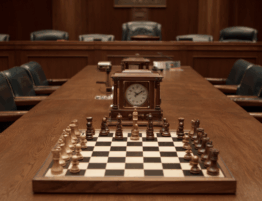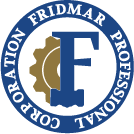
Not all construction disputes arise between strangers. At times, disputes arise between members of the same community, one of whom offered their supply of service and materials and the other who was unsatisfied with those services. Despite disputes arising within a community, securing a construction lien involves taking the matter outside the community and into the formal Court system.
Fortunately, the Construction Act contains a mechanism to return those disputes for resolution in the community. Namely, Section 58(1)(b)[1] of the Act allows for a Judge, after the closing or expiry of pleadings, to refer the whole action or any part of it for trial to a person agreed on by the parties.
Uses and Powers of Section 58
Generally, Section 58 is used by parties in the Toronto Superior Court jurisdiction to have matters referred to Associate Justices specializing in construction lien law and procedure. When matters are referred to Associate Justices through by operation of Section 58, those Associate Justices have the right to direct timetables for documentary disclosure, examinations for discovery, and Scott Schedules, they are seized of hearing motions and any procedural disagreements involved in the matter, and ultimately make a determination and disposition of the actual dispute.
While the caselaw is silent on this point, Section 58 theoretically affords this same procedural and determinative power to any person agreed-upon by the parties. The person does not have to be educated, appointed, etc. It just has to be one person that the parties agree on. Even then, Section 58 (1.3) states that, if a motion for reference is made and the responding party does not oppose the motion or appear at the hearing, they are deemed to agree on the selected individual.
Community Dispute Resolutions
Depending on the type of community, it is not uncommon for disputes to be referred to the leaders who act as mediators between members. For example, in the Jewish Orthodox community, there is a rabbinical court – led by a Chief Rabbi – which oversees matters concerning family disputes, property disputes, and others. This court has previously been confirmed by the Supreme Court of Canada to have judicial powers and enforcement strength, so long as the decisions of the rabbinical court were not inconsistent with the existing law.[2]
In Toronto, the Jewish Alternative Dispute Resolution Centre provides business and other consultations, by way of reference to community religious standards for questions of interest, methods of collecting interest, or different financing structures.[3]
Resolving disputes within the community brings with it many added benefits. In addition to the decision-makers having intimate knowledge of the community and its relationships, some community leaders are qualified to not only make equitable but also tailored decisions to the needs of that specific community and to underlying issues surrounding those disputes. Having a leader of the community adjudicate also avoids general alienation of the parties involved in the dispute from the community by broadcasting or taking the issue outside of the community.
Benefits of Utilizing Section 58 in Community Disputes
Any time a contractor or subcontractor wishes to preserve and perfect a construction lien, they have to go through the courts. However, Section 58 creates an opportunity to take a perfected, secured lien and take it back to the community for deliberation.
While parties are free to agree on having their community leaders adjudicate or mediate/arbitrate disputes as early as the dispute arises, proceeding through a Section 58 reference provides one party the added comfort of knowing that their claim is secured and that they can still rely on their community to heal the conflict.
Although there is no reported caselaw on Section 58 being used this way, hopefully the brief above analysis provides an insight into the ability for parties to proceed in such a manner.
The foregoing is for informational purposes only and should in no way be relied upon as legal advice. If you have any further questions, or would like to schedule an appointment for legal advice tailored to your circumstances and business, please contact me at dan@fridmar.com.
[1] Construction Act, R.S.O. 1990, c. C.30, as amended, s. 58(1)(b).
[2] See Marcovitz v Bruker, 2007 SCC 54 and Lichtman v R, 2017 TCC 252
[3] https://thecjn.ca/news/canada/halachic-group-dispute-resolution/





